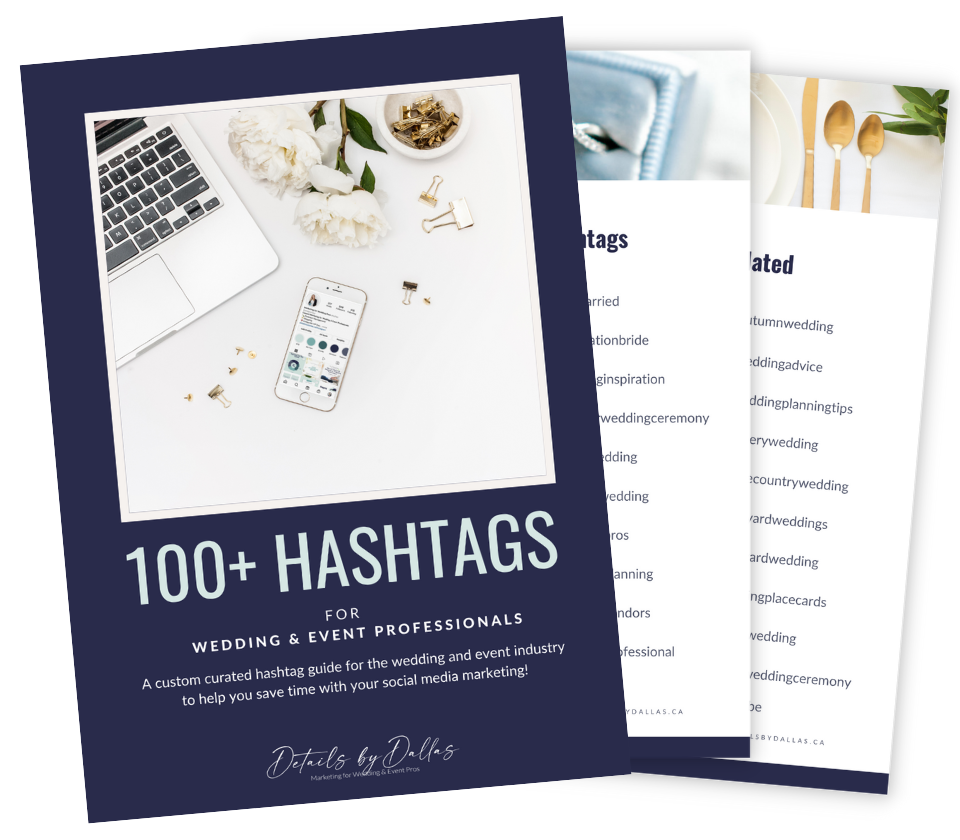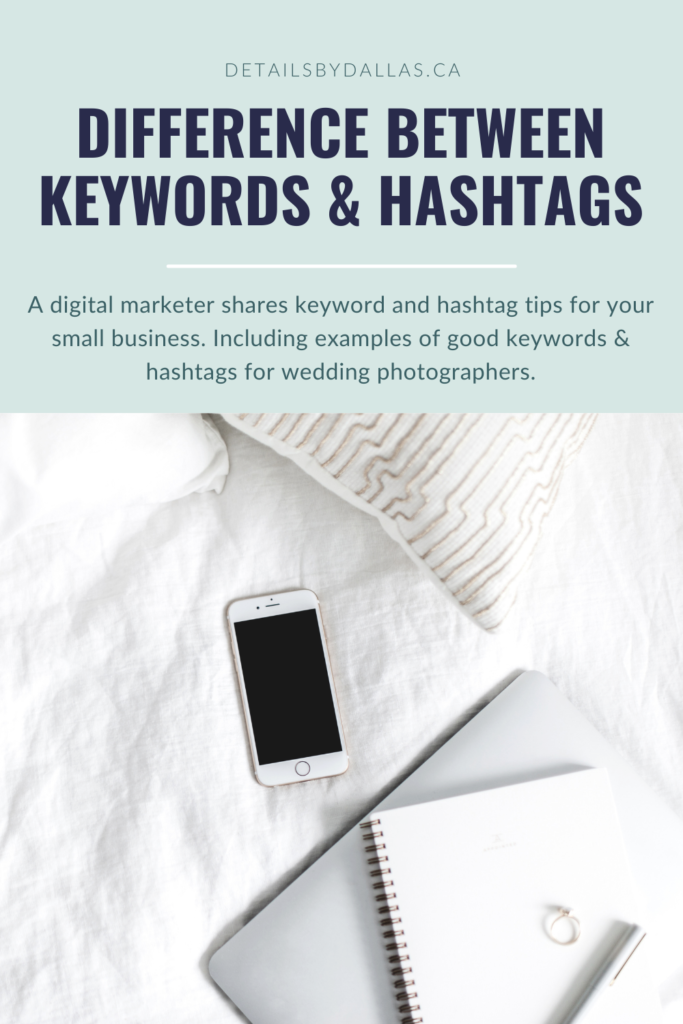Keywords and hashtags are the two words in digital marketing that are often used interchangeably and are commonly mistaken for one another. That’s right friends, they are not one and the same. So, if you don’t know the difference between keywords and hashtags, no worry! Let me show you!
Are Keywords & Hashtags The Same?
No, they are not the same. Keywords are part of your long-term marketing strategy. They are primarily used on your website, blogs and Pinterest to help with your SEO. Compared to hashtags which are part of your short-term marketing strategy and are used primarily for social media channels like Instagram, Facebook, Twitter & LinkedIn.
So What Exactly are Keywords & Hashtags?
There are two different categories when it comes to keywords, short tail and long-tail keywords. Compared to hashtags, there are several specific hashtags categories such as brand hashtags, event hashtags and industry hashtags, but we will not be getting into the details of these in this blog.
Short Tail Keywords:
Short-tail keywords are broad topic search terms that consist of one to three words. These phrases are more generalized and can cover a wide range of topics.
Some examples of short-tail keywords are:
- Luxury wedding photographer
- Top wedding photographer
- Wedding photographer
Long-Tail Keywords:
Whereas long-tail keywords are more specific search terms and are typically three or more words. These phrases generally are focused on a niche and will bring in more targeted traffic to your website. Some examples of long-tail keywords are:
- Vancouver luxury wedding photographer
- Luxury wedding photographers in Vancouver, British Columbia
- Best Wedding Photographer in Canada
Hashtags:
Hashtags are words and sometimes phrases preceded by the ‘#’ symbol. The use of hashtags on social media makes your content more discoverable by a specific audience. Some examples of hashtags are: #luxuryweddingphotographer #luxuryweddingphotography
What Are Some Examples of Good Keywords & Hashtags?
Using our reference from above, we will look at some examples of what makes a good keyword and hashtag versus a bad one.
Good keywords use the actual words or phrases that your ideal target audience is typing into a search engine. For example, ‘Luxury Wedding Photographer’ or ‘Best Wedding Photographer in Canada’. Even though you know the industry-specific terms that relate to your business, that does not necessarily mean users understand those terms and are searching for them. So, try avoiding overly niched keywords such as ‘photojournalistic style destination wedding photographer for luxury weddings’. By combining several niche keywords into an ultra-niche keyword, you may confuse the search engine and thus lose out on users finding you.
In regards to hashtags, the number of times a hashtag has been used, as well as the size of your audience, will impact the effectiveness of each keyword. For example, if you are using generalized hashtags such as #love your account runs a higher risk of being lost in the millions of other posts using that generic hashtag. The algorithm will also not prioritize your content to your ideal target audience because they don’t know who that is.
Ideally, you want to stick to more specific niche hashtags, thus increasing your chances of quality engagement. So if I were a wedding photographer who only worked in Vancouver, BC, I would want to use #Vancouverweddingphotographer. This is a niche and location-specific hashtag that will get you discovered by potential couples looking for a wedding photographer in Vancouver. Rather than #Vancouver #weddingphotographer with these generic hashtags, your post is less likely to be found by your ideal target audience.
Not sure which hashtags you should use?
 Get my FREE hashtag guide for wedding & event professionals. Jam packed with social media marketing tips and 100+ hashtags you can start using today!
Get my FREE hashtag guide for wedding & event professionals. Jam packed with social media marketing tips and 100+ hashtags you can start using today!
Where Do I use Hashtags for Instagram?
Even though you can add hashtags in the comments and captions, they will not both benefit you and your account. In 2021 Instagram announced through the Instagram Creators account that the best practice for hashtags is to include them in the caption. By having your hashtags in the captions, your post is more likely to be discovered using the Instagram search tool, thanks to Instagram’s algorithm.
Where Do I use Keywords For Pinterest?
There are seven main areas you want to include your keywords on Pinterest. Starting off with your account details, you will want to include your main keywords in your profile name and your bio. Once they are added to your account information, you will want to ensure your board names and board descriptions include strategically researched keywords. Lastly is the pins. Be sure to add keywords to the pin titles, pin descriptions and even incorporate them into your text overlay on images.
In summary, keywords are commonly used on your website, blog and Pinterest, while hashtags are for social media such as Instagram, Facebook and Twitter. Now that you have a better understanding of the difference between keywords and hashtags, I hope you feel empowered to use each correctly! Be sure to follow along on Instagram at @detailsbydallas for more social media tips, blogging tips & Pinterest tips!

